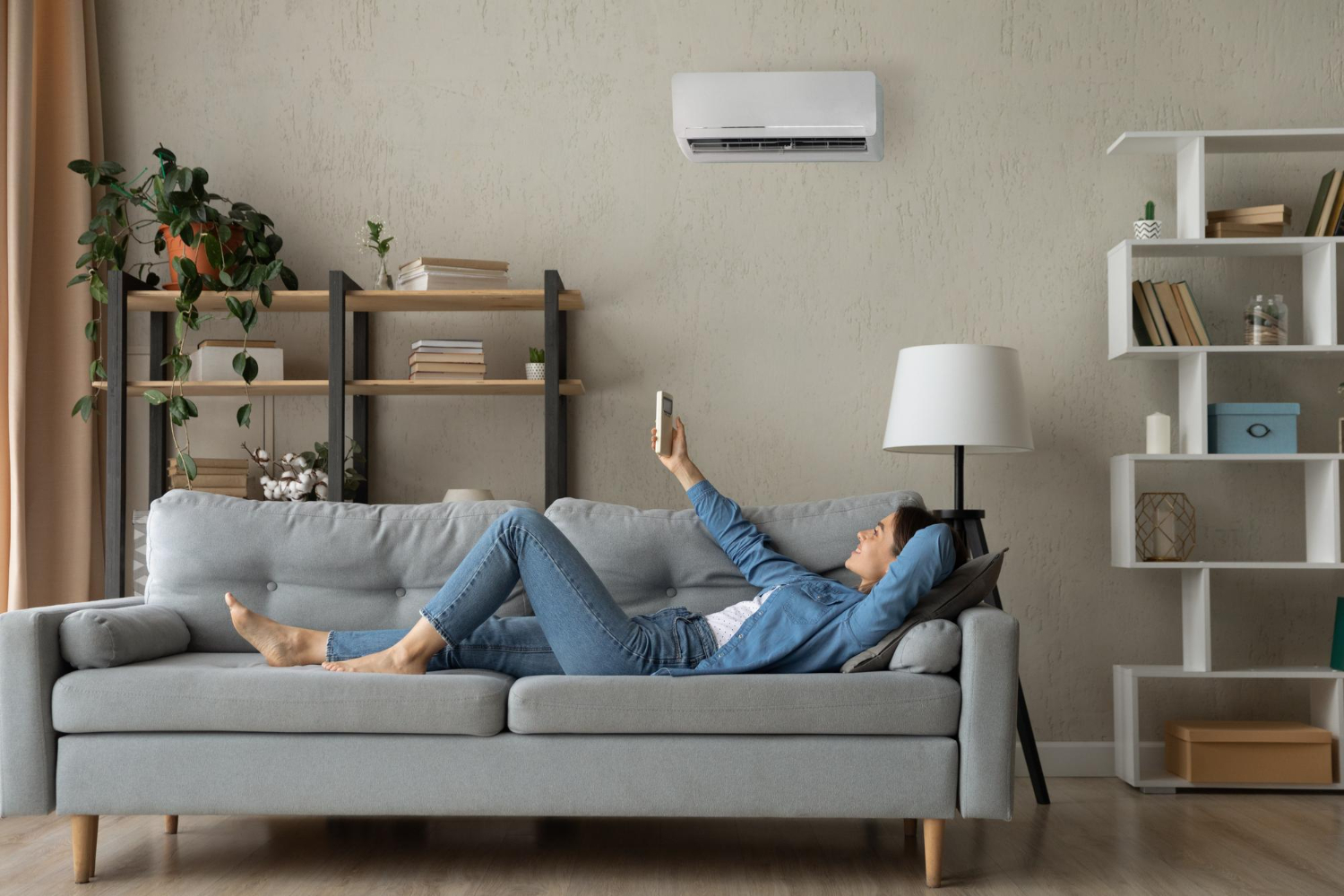When your air conditioner keeps running but your home stays warm, it’s more than just an inconvenience. A constantly running AC that isn’t cooling is a sign something’s not working as it should. In the middle of a Lake City summer, when the heat builds fast, that can make your home uncomfortable and lead to wasted energy.
You might hear the system humming or feel air coming through the vents, but if that air isn’t cool, something is off. Whether it’s a setting, a buildup of dirt, or a broken part, figuring out the cause early can help prevent bigger headaches later. Lake City homes rely heavily on air conditioning during the hottest months, so when cooling fails, you feel it right away.
Common Reasons for Continuous AC Operation Without Cooling
Your AC is meant to cycle on and off to keep temperatures at a set comfort level. When it runs constantly but doesn’t get the job done, start by narrowing down the potential causes. Below are common reasons this happens:
1. Incorrect Thermostat Settings
A thermostat that’s set too low can keep your AC in constant operation. Double-check that it’s set to cool and not fan. Also, avoid setting the temperature too low thinking it will cool faster. Doing that only overworks the system.
2. Dirty or Clogged Air Filters
A dirty air filter blocks airflow. When that happens, your AC struggles to move enough air through the system to cool your home. If you haven’t replaced the filter in a while, this is a good place to start. Dirty filters can cause the unit to run longer than needed, overheat, or even freeze.
3. Low Refrigerant Levels or Leaks
Refrigerant is what actually cools the air. If the level drops due to a leak, the system can’t remove heat well. It keeps running in an attempt to reach the set temperature but can’t get there. You might notice weak airflow, warm air from vents, or even ice on the outdoor unit. Leaks should always be handled by one of our technicians.
4. Malfunctioning Components
Common issues include a damaged compressor, a broken fan motor, or a faulty capacitor. These parts play key roles in cooling, and if they fail, the unit won’t cool properly even though it’s still running. These parts wear out over time and need inspection and replacement when problems come up.
It can feel frustrating when your system is running but not cooling. One Lake City homeowner recently called after noticing their AC hadn’t stopped for hours, yet the house still felt warm. It turned out to be a mix of a clogged filter and a failing capacitor, two simple problems that created a big issue.
Impact Of Continuous Operation On Your AC System
An AC that runs all day without cooling brings more than discomfort. It can damage the system over time and raise your power bill. Here’s what can happen when the issue isn’t addressed:
– Higher Energy Costs: Running an inefficient AC nonstop uses more electricity. If it can’t cool properly, it never gets to turn off, which adds up quickly on your monthly bill.
– Wear and Tear on Components: Continuous cycles put stress on the motor, fan, and compressor. These parts wear out faster than normal under pressure, shortening the life of the unit.
– Increased Risk of Breakdowns: Just like overusing any machine, running your AC too much without fixing the core problem can lead to unexpected breakdowns. Mid-summer failures are often tied to problems ignored earlier in the season.
– Reduced Cooling Performance Over Time: Even if it seems to be working now, over time the overall efficiency drops. The system takes longer to cool and may begin to cool unevenly, leaving hot and cold spots in your home.
Addressing the issue early limits long-term effects. Constant operation is always a sign that something deeper is going on. When it happens, it’s better to act quickly before small problems grow into costly repairs.
Troubleshooting and Identifying the Problem
When your air conditioner keeps running without bringing the temperature down, some issues may be simple enough to spot. But it’s still helpful to go through a few basic checks before assuming the system is failing.
Here are a few steps homeowners in Lake City can try before calling in help:
– Make sure the thermostat is on the right setting. Set it to cool, not fan or heat. If you recently reset it or had a power outage, double-check that it’s controlling the system correctly.
– Look at the thermostat’s location. If it’s near a lamp, window, or other heat source, it might think the room is warmer than it really is and tell the unit to run too often.
– Check the air filter. If it’s dirty or hasn’t been changed in over a month, replace it to help restore airflow.
– Walk around your home and listen to what the AC is doing. Are the vents blowing warm air? Do you hear strange buzzing, clicking, or grinding sounds? Any of these could point to issues deeper inside the system.
– Look at your outside unit. Ice around the refrigerant lines or pooling water could mean serious cooling problems.
It’s also worth noting how often this problem happens. If your AC used to run fine and suddenly it’s acting up during the latest heat wave, that could point to damage caused by high demand. On the other hand, if the unit has always struggled to cool the home properly, the system might be too small or working under poor conditions. Either way, any ongoing problem calls for attention from our professionals.
Why Regular Service Helps Avoid Bigger Problems
Routine AC maintenance isn’t just to check off a seasonal chore, it actually helps prevent the common problems described above. With Lake City’s hot and humid summers, your cooling system has to work longer hours than average. That constant strain leads to grime buildup, worn-out parts, and stress on the key systems.
When our technicians do a maintenance visit, they look at all the things that wind up causing constant operation:
– Refrigerant levels are tested and, if low, inspected for leaks
– Electrical connections are tightened to prevent parts from shorting out
– Moving parts such as fan motors are oiled and tested
– Air filters and coils are cleaned to improve airflow and reduce blocking
Another benefit to scheduled service is that it’s timed before ACs enter full-use mode. Getting ahead of issues in early summer means fewer breakdowns when the system is working its hardest.
Trying to fix cooling problems yourself can sometimes make it worse. Store-bought refrigerant products or off-brand parts don’t match your system’s specs. If the leak isn’t sealed properly or if a new part doesn’t meet the unit’s needs, your AC could start running even longer or not run at all.
Some AC problems also hide deeper concerns. For example, if a fan motor slows down or shuts off when it’s hot outside, you may have wiring issues that aren’t noticeable right away. System-wide checks are the only way to spot these things.
Staying Cool and Avoiding Future AC Trouble
Nobody wants to deal with an AC that seems to run endlessly and still fails to cool. Yet, that’s a common call during Lake City’s hottest weeks. Whether caused by a simple clogged filter or something more serious like a failing compressor, constant operation is your system trying to say something’s wrong.
Addressing it early can prevent higher bills, keep your home comfortable, and avoid system failure when you need it most. Small issues that go unchecked can quietly turn into major expenses. Staying alert to the warning signs helps protect your home’s cooling and your wallet over the long run.
Routine care, correct settings, and quick attention to changes in airflow or noise can go a long way. If your air conditioner in Lake City is running non-stop and you’re still not comfortable, don’t wait for the problem to get worse. Reliable cooling starts with knowing what to watch for and getting expert help when you need it.
If your home doesn’t cool properly when the AC runs, it might be time to review how your system operates and make sure nothing is overlooked. Working with experienced professionals can make all the difference when it comes to solving ongoing issues with your air conditioner in Lake City and keeping your space comfortable during hot summer days. Lane Heating And Air stays committed to providing clear guidance and practical advice to help you avoid costly repairs, so for a quick estimate or to book a service visit, please contact us today.




